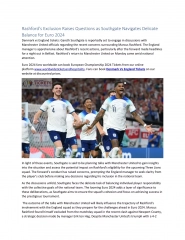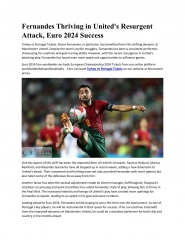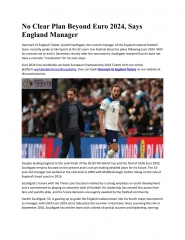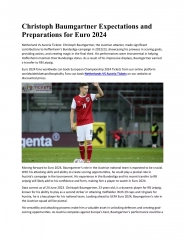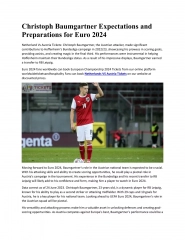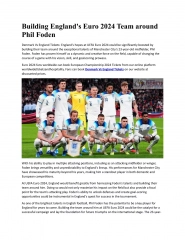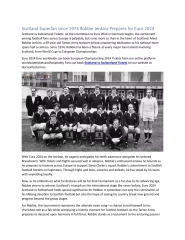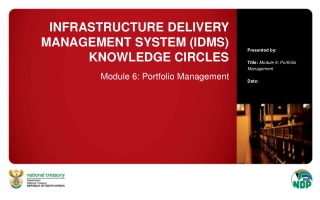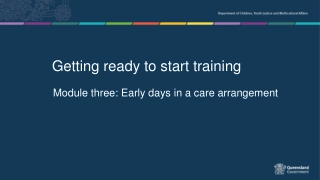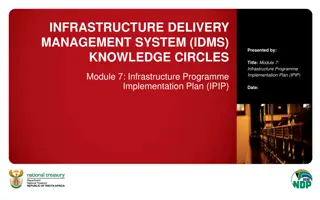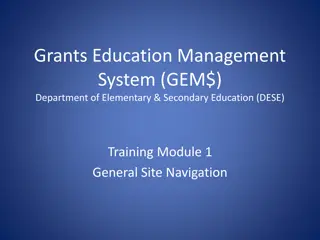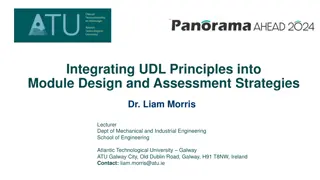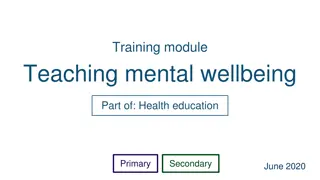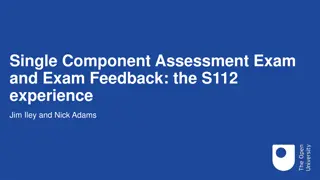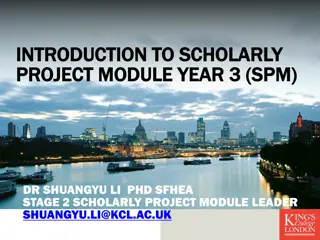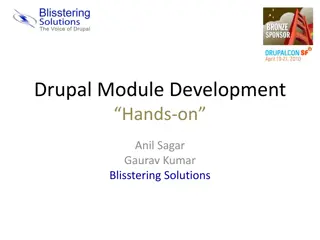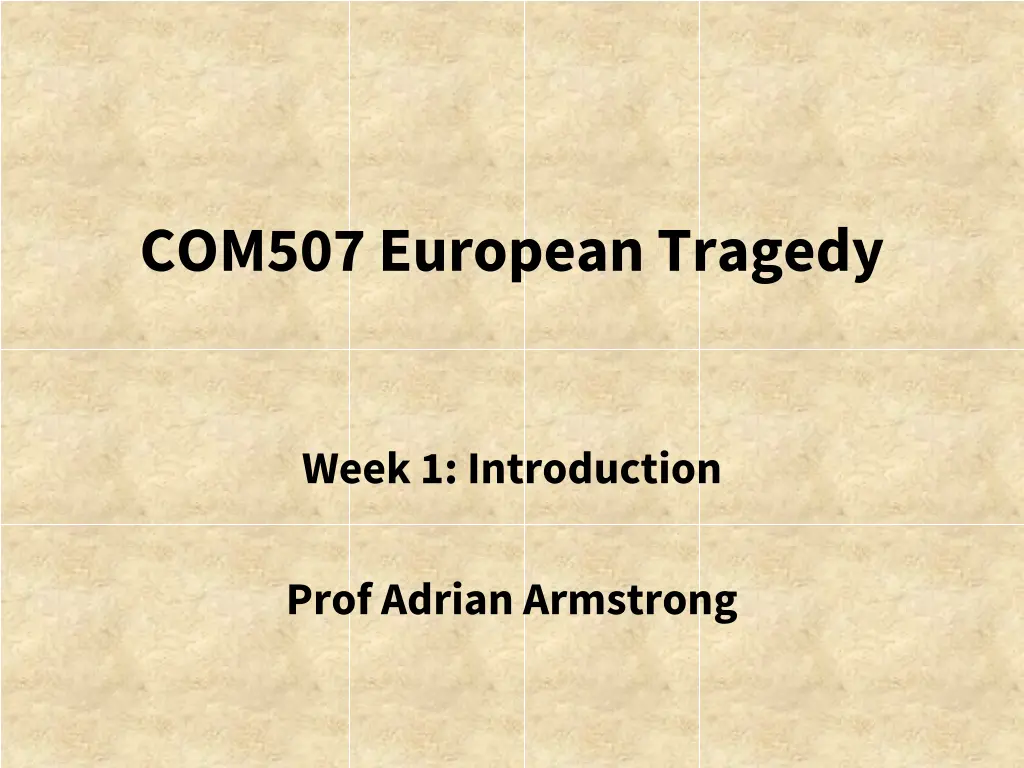
European Tragedy Module at COM507: Introduction to Dramatic Traditions
Explore the world of European tragedy with Prof. Adrian Armstrong in this COM507 module. Understand the significance of tragedy, major literary concepts, and critical thinking skills. Dive into sessions covering major themes, discussions, and team activities focusing on classical plays. Enhance your analytical and communication skills through interactive elements and seminar activities. Access resources on QMplus for a deep dive into tragic literature and cultural perspectives.
Download Presentation

Please find below an Image/Link to download the presentation.
The content on the website is provided AS IS for your information and personal use only. It may not be sold, licensed, or shared on other websites without obtaining consent from the author. If you encounter any issues during the download, it is possible that the publisher has removed the file from their server.
You are allowed to download the files provided on this website for personal or commercial use, subject to the condition that they are used lawfully. All files are the property of their respective owners.
The content on the website is provided AS IS for your information and personal use only. It may not be sold, licensed, or shared on other websites without obtaining consent from the author.
E N D
Presentation Transcript
COM507 European Tragedy Week 1: Introduction Prof Adrian Armstrong
Points to be covered What will you get out of this module? Scheduling and format of sessions QMplus The set texts Assessments But first
Why pay attention to tragedy? Durability and cultural prestige Even ancient plays are still widely performed Much theoretical attention through the ages Offers access to ways of thinking about culture Highly contentious Differing perspectives encourage critical thinking
What will you get out of this module? Intellectual outcomes: Familiarity with some major tragedies and the surrounding dramatic traditions Understanding of some major literary concepts, and of perspectives on tragedy from various major thinkers Understanding of the interplay between tragedy and wider belief systems Employability outcomes (see module guide/QMplus): Analytical skills: you examine how information is conveyed Reflective communication skills: assignment 1 involves a creative plot summary and reflective commentary Independence and intellectual initiative: critical thinking, synthesizing information, etc. Teamworking: through seminar activities
Scheduling and format of sessions Two classes per week Monday 9-10, Bancroft 1.08: seminar Thursday 4-5, Bancroft 1.08: lecture (or occasionally seminar) Typically a seminar will follow up the previous week s lecture Four classes per text (five for Blood Wedding), spread over three weeks see module guide Format of sessions Most lectures will focus on contexts, major themes, and/or theoretical perspectives Seminars will involve various activities, often team-based: Close reading of extracts from the plays Presenting material: creative synopsis, reporting on secondary reading Structured debates and discussions: teams with designated roles, engaging with issues raised in the plays
QMplus General information and resources Module guide, link to online reading list, assessment submission and guidance, etc. Material relating to the various classes Lecture slides, handouts, results of any Mentimeter polling Interactive elements Wikis for teams to prepare and/or record their contributions to seminars These also enable you to receive feedback Much more than an archive of documents Resources on the site will develop over the semester Engage with it regularly
The set texts In the order in which we ll work on them: Aristotle, Poetics [theory; Greece (Athens), 4C BCE] weeks 1-2 Seamus Heaney, The Burial at Thebes: A Version of Sophocles Antigone [Greece (Athens), 5C BCE] weeks 2-4 Jean Racine, Phaedra (Ph dre) [France, late 17C] weeks 4-6 Henrik Ibsen, Ghosts(Gengangere) [Norway, late 19C] weeks 6-9 Federico Garc a Lorca, Blood Wedding (Bodas de sangre) [Spain, early 20C] weeks 9-11 NB use the translations specified in the module guide Other versions exist, and can be useful, but you literally aren t reading the same thing The Poetics is freely available online via the library Second-hand copies of the other texts can be acquired via abebooks.co.ukor alibris.co.uk
Assessments 1. Creative plot summary and reflective commentary (1500 words, 40%) due 24 February 2. Essay (2000 words, 60 %) due 12 May The essay topics will be comparative You ll need to engage with two or more plays For the first assignment you will need to: Pick a famous figure from the present or from history who can serve as the protagonist of a tragedy Produce a 500-word plot summary Write a reflective commentary (1000 words) setting out how your plot design responds to Aristotle s ideas about tragedy Guidance, and an example summary, are available via the assignment 1 submission page The Week 2 seminar gives an opportunity for practice

